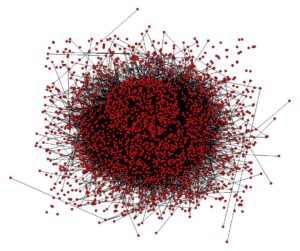Complexity Thinking in Translation Studies
 In Search of Methodologies
In Search of Methodologies
Call for Papers, 1-2 JUNE 2017, KU LEUVEN, BELGIUM
Strands of complexity thinking has been challenging the reductionist, linear paradigm of Western scholarship since its (rudimentary) origins in the late 1800s. Following chaos theory in the 1980s, current complexity thinking (complexity theory) is growing in influence in the natural sciences as well as in social sciences and the humanities. Examples of the latter two categories are the work of Byrne in social sciences as well as the work of Morin, Wheeler, Queiroz and others in the humanities. One also finds numerous scholars who could be labelled complexity thinkers, but who do not necessarily use the terminology of complexity thinking. In translation studies, Marais made an effort to link translation studies and complexity thinking.
One of the many unfinished tasks of linking complexity thinking to translation studies is to consider the methodological implications of complexity thinking for translation studies.
Firstly, complexity thinking arose from within natural sciences, in particular from within mathematical and computational approaches to systems thinking. The philosophical and methodological implications of “adopting/adapting” quantitative approaches to qualitative research in the humanities are all but clear. It is not clear at all which of the quantitative approaches are adaptable, if any, and if they are to be adapted, how to do so.
Secondly, translation studies scholars need to consider the array of methodological options offered by complexity thinking and decide on the usefulness of these. For this reason, taking stock of existing methodologies from the perspective of complexity thinking seems to be an imperative.
With the above in mind, we invited two specialists in complexity thinking to introduce these topics at a two-day conference in Leuven, Belgium, in 2017, namely Joao Queiroz (University of Juiz de Fora, Brazil) and David Vampola (State University of New York, USA). In addition, we call for specialist papers that consider the methodological implications of complexity thinking in translation studies, including cultural translation, intersemiotic translation, sociological translation and translation and development.
Papers can be speculative and explore suitable methodologies for adopting complexity thinking to translation studies, or they can present case studies in which certain methodologies have been successfully applied from a complexity-thinking perspective.
We are investigating publication possibilities to publish selected proceedings as a book or in a special edition of a journal.
Abstracts can be sent to Reine Meylaerts (reine.meylaerts@kuleuven.be) and Kobus Marais (jmarais@ufs.ac.za).
For more information, visit the conference web page: http://www.ufs.ac.za/humanities/unlisted-pages/complexity/complexity/home-page
Schedule:
Deadline for abstracts: 30 September 2016
Notification of acceptance: 30 October 2016
Registration: 1 February to 30 March 2017
Conference: 1-2 June 2017